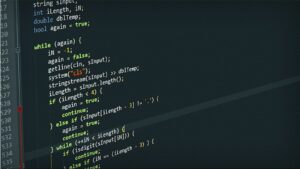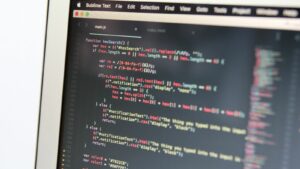”
Key Takeaways
- Skills Development: Earning the Programming Merit Badge equips scouts with essential coding skills, focusing on at least two programming languages and fundamental coding concepts like algorithms and data structures.
- Hands-On Projects: Scouts engage in practical projects, such as developing games or applications, which enhance creativity, problem-solving abilities, and technical proficiency.
- Collaborative Learning: Through teamwork and collaborative challenges, scouts improve their communication skills and learn to troubleshoot programming issues effectively.
- Career Readiness: Acquiring the Programming Merit Badge opens doors to various career opportunities in software engineering, data analysis, and web development, giving scouts a competitive edge in the job market.
- Continuous Learning: This badge promotes lifelong learning and digital literacy, laying a strong foundation for further education in technology and computer science.
- Effective Study Techniques: Scouts are encouraged to adopt strategies like regular practice, pair programming, and utilizing online learning platforms to successfully complete requirements for the badge.
Earning a programming merit badge opens up a world of possibilities for young enthusiasts eager to dive into the realm of technology. This badge not only showcases a commitment to learning but also equips scouts with essential skills in coding and software development. As the demand for tech-savvy individuals continues to rise, mastering programming basics can set the foundation for a successful future.
Through hands-on projects and collaborative challenges, scouts gain practical experience while exploring various programming languages and concepts. This journey fosters creativity and problem-solving abilities, essential traits in today’s digital age. Whether it’s building a simple app or understanding algorithms, the programming merit badge serves as a stepping stone into the exciting world of computer science.
Programming Merit Badge
 The Programming Merit Badge equips scouts with fundamental knowledge and skills in computer programming. Earning this badge involves completing a series of requirements designed to teach the basics of programming languages, software development, and problem-solving techniques.
The Programming Merit Badge equips scouts with fundamental knowledge and skills in computer programming. Earning this badge involves completing a series of requirements designed to teach the basics of programming languages, software development, and problem-solving techniques.
Scouts engage in hands-on projects that foster creativity and analytical thinking. Through these projects, they learn to write code, debug programs, and develop applications, enhancing their technical proficiency. Various programming languages, such as Python, Java, and Scratch, serve as tools for learning and experimentation.
Collaborative challenges encourage teamwork and communication skills. Scouts often work together to troubleshoot issues, further solidifying their understanding of programming concepts. Completing the requirements builds a strong foundation for potential careers in fields such as software engineering, data analysis, and web development.
Ultimately, the Programming Merit Badge forms an essential stepping stone into the world of computer science, promoting lifelong learning and digital literacy.
Requirements for Earning the Programming Merit Badge
Earning the Programming Merit Badge involves specific tasks focused on skill development and project completion. Scouts engage in structured activities designed to enhance their programming capabilities.
Skill Development
Scouts must demonstrate proficiency in at least two programming languages, illustrating their understanding of basic coding concepts, control structures, and data types. They learn to write clear, efficient code while focusing on problem-solving techniques. Tasks include developing algorithms, utilizing loops and conditionals, and understanding functions and variables. Completing exercises that involve debugging and code optimization further strengthens their skills.
Project Completion
Scouts are required to complete one substantial programming project, which showcases their coding skills and understanding of software development. This project can involve developing a simple game, creating a website, or building an application. In addition, they present their project, explaining the objectives, the programming languages used, and the challenges faced. Documenting their work process and reflecting on their learning experiences is also essential for the badge completion.
Benefits of the Programming Merit Badge
Earning the Programming Merit Badge offers numerous advantages that enrich scouts’ understanding of technology. Scouts develop crucial skills in coding and software development while preparing for future opportunities.
Enhancing Coding Skills
Enhancing coding skills occurs through the completion of various structured tasks. Scouts learn a variety of programming languages, including Python, Java, and Scratch. Mastery of coding concepts and techniques takes place as they write, debug, and optimize code. Engaging in hands-on projects, such as creating games or applications, allows scouts to apply their newfound knowledge practically. They gain experience in algorithm development, utilizing loops, conditionals, and functions, which strengthens their problem-solving abilities and creativity. Completion of these projects not only showcases their skills but also builds confidence in their coding proficiency.
Career Opportunities
Career opportunities often expand for scouts who earn the Programming Merit Badge. Proficiency in programming languages is increasingly sought after in the job market. Scouts gain a competitive edge by demonstrating their skills to potential employers, making them attractive candidates for internships and entry-level positions in software engineering, data analysis, and web development. Understanding programming concepts prepares them for further education in computer science or technology-related fields. The skills acquired through the merit badge offer a solid foundation for lifelong career exploration and development in an ever-evolving digital landscape.
Tips for Successfully Earning the Programming Merit Badge
Scouts can enhance their chances of earning the Programming Merit Badge by employing effective study techniques and utilizing valuable resources and tools. Here are some strategies to consider.
Effective Study Techniques
 Practice Regularly: Allocate time daily for coding practice. Hands-on experience solidifies concepts learned in theory.
Practice Regularly: Allocate time daily for coding practice. Hands-on experience solidifies concepts learned in theory.- Break Tasks Down: Divide programming projects into smaller components. Tackling one part at a time simplifies complex tasks.
- Utilize Pair Programming: Work with a partner on coding exercises. This method fosters collaboration and allows for mutual learning.
- Review Code Frequently: Analyze code for errors or inefficiencies. Debugging strengthens understanding and improves coding skills.
- Challenge Yourself: Engage in coding challenges or competitions. These experiences enhance problem-solving skills and encourage creativity.
- Online Learning Platforms: Utilize websites like Codecademy, Khan Academy, or Coursera for structured programming courses.
- Programming Communities: Join forums like Stack Overflow or Reddit’s programming sections. Seeking guidance and sharing insights with peers enhances learning.
- Open-Source Projects: Contribute to platforms like GitHub. Working on real projects helps apply knowledge and build a portfolio.
- Interactive Coding Environments: Use tools like Repl.it or Scratch for real-time coding experience. These environments allow for instant feedback and experimentation.
- Books and Documentation: Refer to authoritative programming books and official documentation. Solid foundational knowledge comes from reputable sources.
Engaging In Hands-on Projects And Collaborative Challenges
Earning the Programming Merit Badge is a transformative experience for young scouts. It not only equips them with essential coding skills but also fosters creativity and problem-solving abilities. By engaging in hands-on projects and collaborative challenges, scouts gain practical experience that prepares them for future opportunities in technology.
The skills acquired through this merit badge open doors to various career paths in an increasingly digital world. Scouts emerge with a competitive edge, ready to tackle internships and entry-level positions in software development and related fields. Overall, the Programming Merit Badge serves as a vital stepping stone in their journey toward becoming proficient in computer science and lifelong learners in technology.
“



